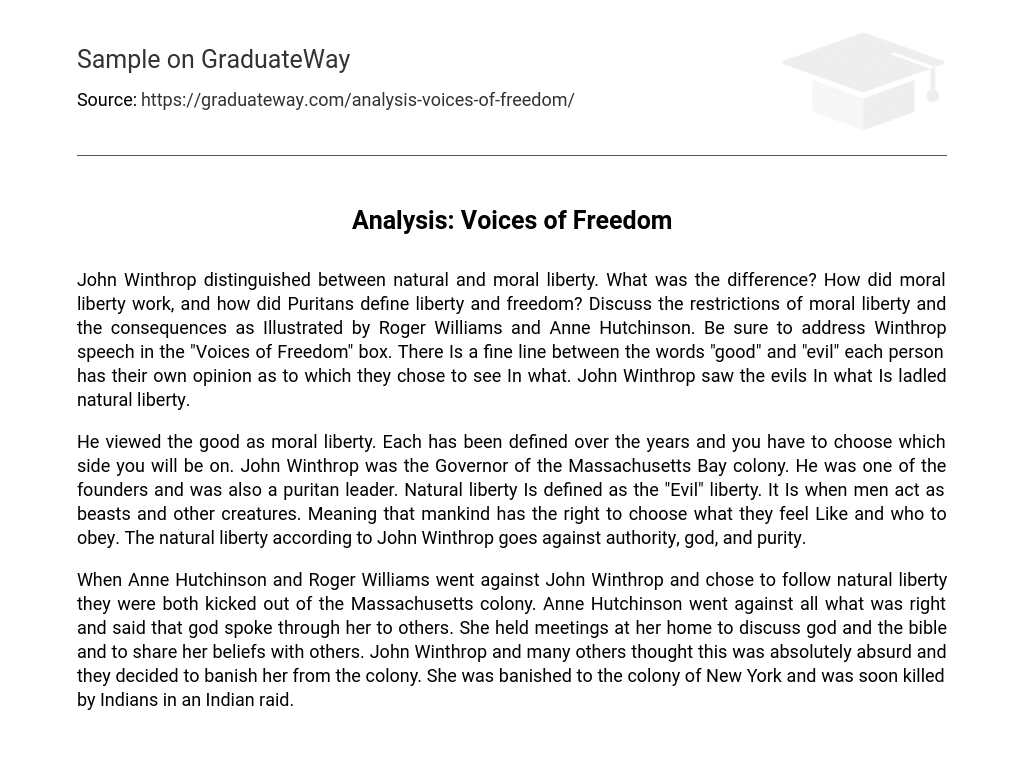John Winthrop distinguished between natural liberty and moral liberty, viewing the former as associated with evil, while the latter represented the pursuit of goodness. The Puritans had their own understanding of freedom and stressed moral liberty as a means to lead a virtuous life. Nevertheless, this notion of moral liberty had limitations, evident in Roger Williams and Anne Hutchinson’s experiences. In his address found in the “Voices of Freedom” box, Winthrop discussed the perils of natural liberty and the significance of moral restraint. The line distinguishing good from evil is subjective since each individual has their own perspective on it. Winthrop detected malevolence within what he termed as natural liberty.
He viewed the good as moral liberty. Each has been defined over the years and you have to choose which side you will be on. John Winthrop was the Governor of the Massachusetts Bay colony. He was one of the founders and was also a puritan leader. Natural liberty is defined as the “Evil” liberty. It is when men act as beasts and other creatures. Meaning that mankind has the right to choose what they feel like and who to obey. The natural liberty according to John Winthrop goes against authority, god, and purity.
Anne Hutchinson and Roger Williams, in opposition to John Winthrop, advocated for natural liberty, leading to their expulsion from the Massachusetts colony. Hutchinson disregarded societal norms by claiming that she was a vessel through which God spoke to others. She convened meetings at her residence to engage in theological discussions and share her beliefs. John Winthrop and others regarded her actions as utterly nonsensical, resulting in her exile from the colony. Hutchinson was banished to the New York colony, where she ultimately met her demise during an Indian raid.





